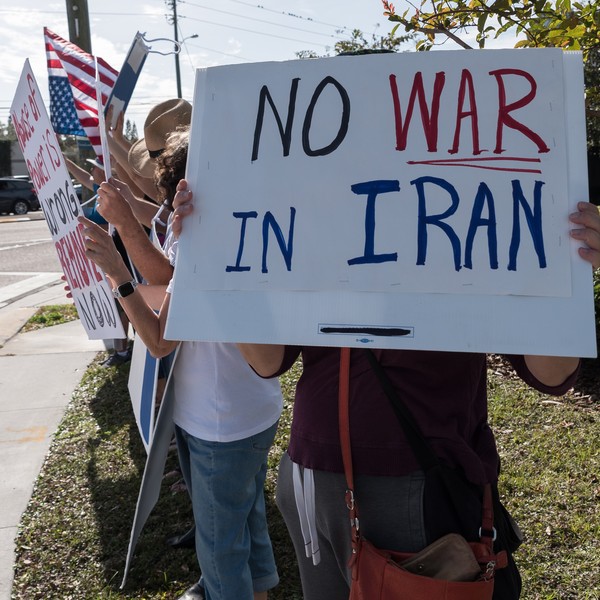Unprecedented protest and resistance has emerged in Iran this week after Mahsa Amini’s death in the custody of Iran’s “morality” police.
The level of anger and frustration in Iran today — on display in dozens of videos across social media — appears far greater than in 2009, when Iranians took to the streets to protest a stolen election and push for reform.
For two decades now, attempts at reforming the system have been stymied; the regime has responded with violence, election fraud, and marginalizing and imprisoning those seeking peaceful reforms. The conclusion many young Iranian women and men appear to have reached is that attempts at reform from within should be abandoned. Isn’t two decades of failure enough, they ask? They boycotted the last election; their anger is immeasurable — and legitimate.
So, while it took weeks before the slogans turned against the regime as a whole in 2009, the current protests called for the overthrow of the regime almost from the outset.
This is the regime's own doing. By blocking reforms, narrowing Iran’s political spectrum, and further limiting freedoms — all the while continuing the corruption, repression and mismanagement — the regime is literally pushing people to choose revolt over reform.
But I fear we haven't seen anywhere near the repressive capacity of the regime yet. There are indications that the state “held back” due to Raisi's presence in New York; he'll return to Tehran today, and the expectation is that things may get very bloody in the coming days. (We may not know for a while what will happen because the regime has shut down most of Iran’s internet access.)
Iranians learned 40 years ago that overthrowing a tyrannical regime through revolution is one thing, and establishing democracy is another matter altogether. The current protests may once again succeed with the former only to fail at the latter. Still, when millions of young women and men see no other way out, that is the path they will choose, come what may.
It didn’t have to be this way; things could have turned out very differently. Iran's civil society is strong enough, and democratic values run deep enough, that had the regime tolerated reforms, Iran could have become increasingly democratic without bloodshed. And, as I wrote last year, had Trump not left the Iran deal and reimposed sanctions, the reformist argument that compromising with the United States would bring Iran prosperity and peace would not have been utterly discredited. Nevertheless, here we are.
The next few days may prove decisive. The ball is in the Supreme Leader's court: he can choose to shut down the "morality" police who beat and harass women, he can listen to the young women and men of Iran and allow meaningful change and avoid violence — or he can choose force and repression, and in doing so, make the population even more angry, frustrated and desperate.
Unfortunately, his choices over the past decades do not provide much reason for hope.















